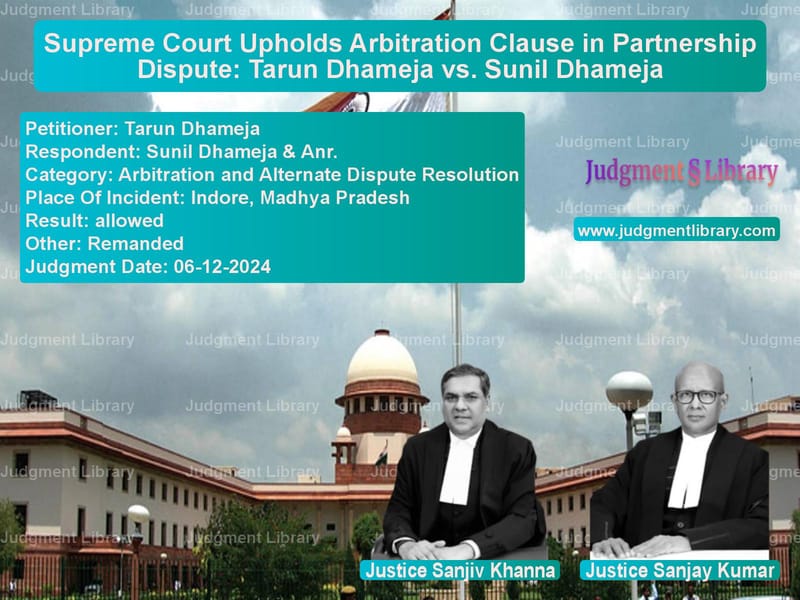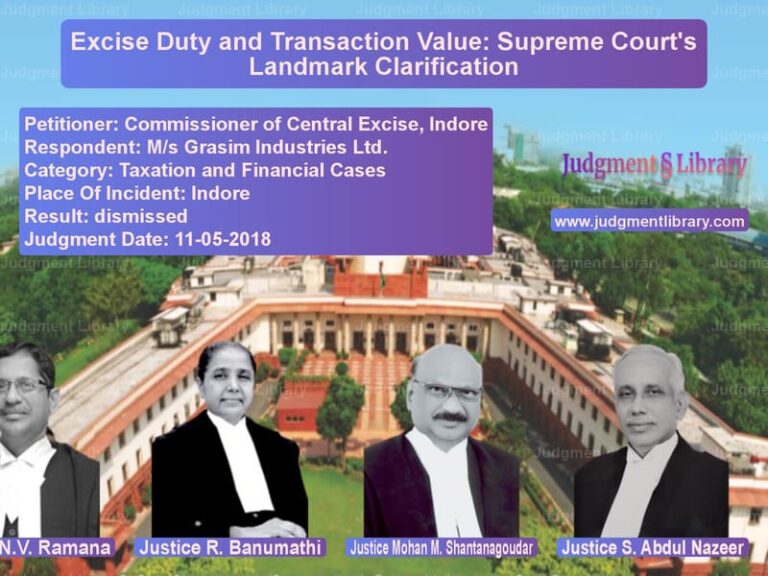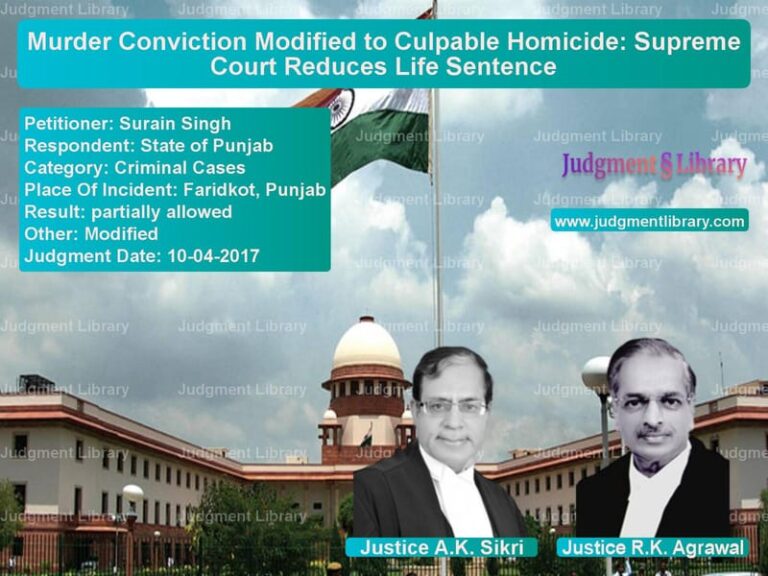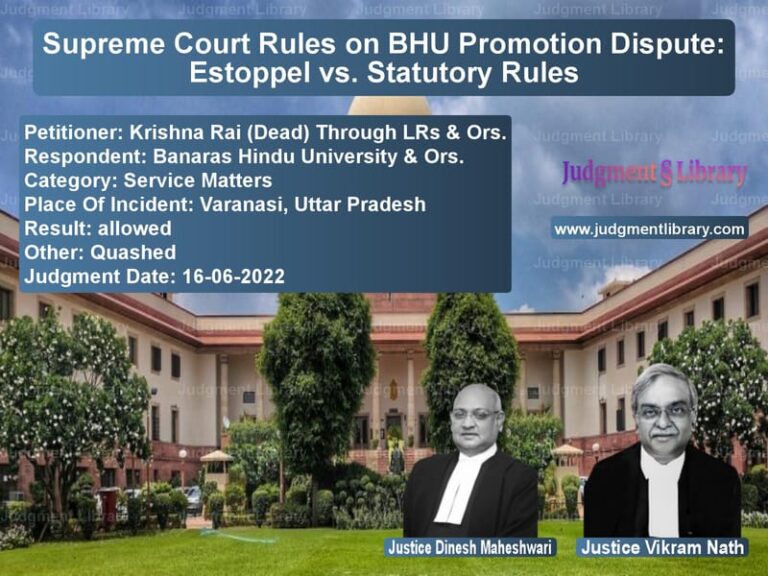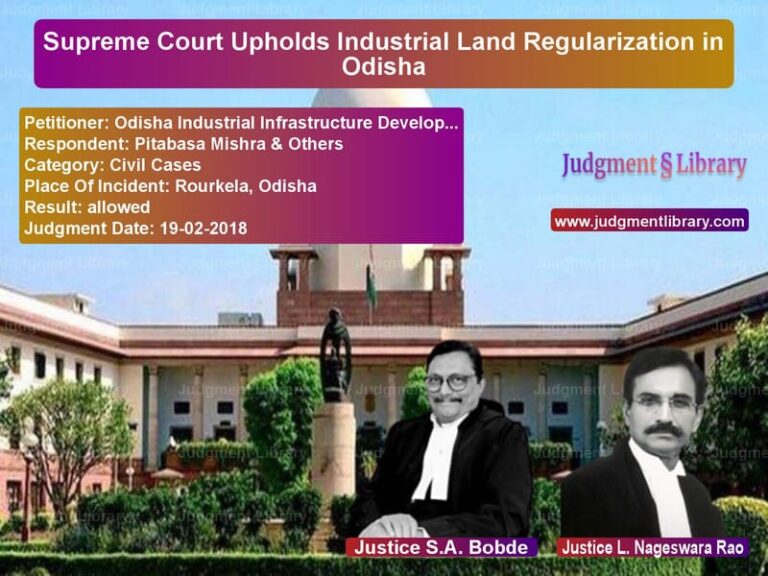Supreme Court Upholds Arbitration Clause in Partnership Dispute: Tarun Dhameja vs. Sunil Dhameja
The Supreme Court of India has ruled in favor of arbitration in the case of Tarun Dhameja vs. Sunil Dhameja, setting aside a High Court judgment that had refused to enforce an arbitration clause in a partnership dispute. The Court clarified that an arbitration clause cannot be deemed non-existent simply because it contains the term ‘optional’. This ruling strengthens the validity of arbitration agreements and reinforces India’s pro-arbitration stance.
Background of the Case
The dispute arose between the partners of a business after the demise of one of the partners, Yeshwant Boolani. The appellant, Tarun Dhameja, being the legal representative of the deceased partner, sought to invoke arbitration under the Partnership Deed dated July 16, 2016. The arbitration clause in the deed stated:
“If any dispute arises between the partners or their respective heirs, it shall be referred to arbitration. Arbitration shall be optional, and the arbitrator will be appointed by partners with their mutual consent.”
The respondents, Sunil Dhameja & Anr., contested the arbitration clause, arguing that the term ‘optional’ made arbitration conditional upon mutual consent. The Madhya Pradesh High Court accepted this argument and dismissed the petition under Section 11(6) of the Arbitration and Conciliation Act, 1996 (A&C Act), leading to an appeal before the Supreme Court.
Supreme Court’s Examination
The Supreme Court, comprising Justices Sanjiv Khanna and Sanjay Kumar, examined the validity and interpretation of the arbitration clause, focusing on three key issues:
1. Is the Arbitration Clause Optional or Binding?
The Court ruled that arbitration was not optional in the sense of being non-binding. Instead, the word ‘optional’ referred to the parties’ ability to choose arbitration, and once invoked by one party, the other could not refuse arbitration.
“The term ‘optional’ does not render the arbitration clause null and void. It simply means that a party has the right to invoke arbitration, and upon doing so, the arbitration clause becomes binding on both parties.”
2. Can the Legal Representative of a Deceased Partner Invoke Arbitration?
The Court held that the arbitration clause extended to the heirs and legal representatives of the partners, as stated in the agreement itself.
“The arbitration clause clearly states that disputes involving partners or their heirs must be referred to arbitration. Therefore, the appellant, being the legal representative of Yeshwant Boolani, is entitled to invoke arbitration.”
3. What Happens If Parties Fail to Agree on an Arbitrator?
The Court clarified that in cases where parties cannot mutually agree on an arbitrator, the Arbitration and Conciliation Act, 1996, allows the court to appoint an arbitrator.
“Where parties cannot agree upon a common name as to who will act as an arbitrator, the court can appoint the arbitral tribunal under Section 11(6) of the A&C Act.”
Final Judgment
The Supreme Court ruled:
- The High Court’s judgment was set aside.
- The arbitration clause was held to be valid and binding.
- The Madhya Pradesh Arbitration Centre was directed to appoint an arbitrator.
- The appointed arbitrator must file a declaration under Section 12 of the A&C Act within 15 days.
- The arbitration fees will be determined as per the Fourth Schedule of the A&C Act.
Implications of the Judgment
This ruling has significant implications for arbitration law in India:
1. Strengthening Arbitration Agreements
The judgment reinforces that arbitration clauses, even if worded as ‘optional’, are binding once invoked by any party.
2. Legal Representatives Can Invoke Arbitration
The ruling confirms that the legal heirs of a deceased partner can enforce arbitration agreements.
3. Clarification on Arbitrator Appointment
In cases where parties fail to agree on an arbitrator, courts can step in to ensure arbitration proceeds.
Conclusion
The Supreme Court’s ruling in Tarun Dhameja vs. Sunil Dhameja upholds the sanctity of arbitration clauses in commercial agreements. By setting aside the High Court’s ruling and allowing arbitration to proceed, the judgment strengthens India’s pro-arbitration legal framework and ensures that businesses can resolve disputes efficiently without undue judicial intervention.
Petitioner Name: Tarun Dhameja.Respondent Name: Sunil Dhameja & Anr..Judgment By: Justice Sanjiv Khanna, Justice Sanjay Kumar.Place Of Incident: Indore, Madhya Pradesh.Judgment Date: 06-12-2024.
Don’t miss out on the full details! Download the complete judgment in PDF format below and gain valuable insights instantly!
Download Judgment: tarun-dhameja-vs-sunil-dhameja-&-anr.-supreme-court-of-india-judgment-dated-06-12-2024.pdf
Directly Download Judgment: Directly download this Judgment
See all petitions in Arbitration Awards
See all petitions in Dispute Resolution Mechanisms
See all petitions in Institutional Arbitration
See all petitions in Judgment by Sanjiv Khanna
See all petitions in Judgment by Sanjay Kumar
See all petitions in allowed
See all petitions in Remanded
See all petitions in supreme court of India judgments December 2024
See all petitions in 2024 judgments
See all posts in Arbitration and Alternate Dispute Resolution Category
See all allowed petitions in Arbitration and Alternate Dispute Resolution Category
See all Dismissed petitions in Arbitration and Alternate Dispute Resolution Category
See all partially allowed petitions in Arbitration and Alternate Dispute Resolution Category

